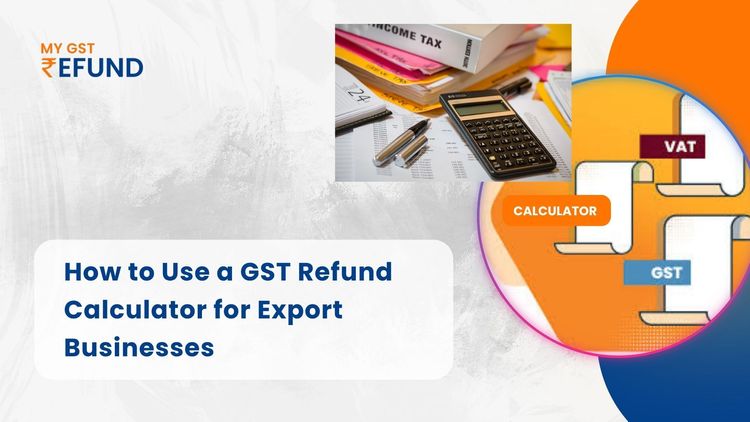Remedies for Innocent Buyers against Non-payment of GST by Suppliers
Published on: Mon Oct 18 2021
Remedies for Innocent Buyers against Non-payment of GST by the Suppliers
In the recent judgment of the Hon’ble Madras High Court in the matter of D. Y. Bethel Enterprises [TS-190-HC(MAD)-2021-GST], wherein assessment orders holding reversal of credit availed by the purchaser for non-payment of GST by the suppliers were quashed on the ground that no recovery proceedings were initiated against such seller in the first instance. The High Court further directed the revenue authorities to hold a fresh inquiry and parallelly initiate recovery action against such defaulted sellers.
The moot question involved was whether entire GST liability can be fastened upon the purchaser on account of non-payment of tax by the seller in view of the fact that such sellers were identifiable and no recovery steps were initiated by the department against them.
Facts of the Case
- The assessee was engaged in trading of Raw Rubber Sheets, had purchased goods from sellers, and based on the returns filed by sellers, availed ITC; However, when Revenue discovered that sellers had not discharged their tax liability, Revenue passed the impugned orders, levying the entire liability on the assesses, rather than confronting the sellers
- The assessee by means of the writ petitions challenged the legality and validity of such assessment orders passed by the State Tax Officer
Department’s contention
- That sellers have not paid any tax and the petitioners could not furnish any proof for the same, hence the department was entirely justified in proceeding to recover the same from the petitioners herein
- That the petitioners have not even received the goods and had availed input tax credits on the strength of generated invoices
Findings and discussion
- The High Court observed that ordinarily assessee must have received the goods and the tax charged in respect of its supply, must have been actually paid to the Government either in cash or through the utilization of input tax credit, admissible in respect of the said supply
- If the tax had not reached the kitty of the Government, then the liability may have to be eventually borne by one party, either the seller or the buyer. The said is basis the Press Release Dated04.05.2018: GST Council approves principles for filing of new return design based on the recommendations of the Group of Ministers on IT simplification. Under the said, Clause (iv) of the Press Release dated4th May 2018 lays down that there should be no automatic reversal of ITCat the end of the recipient. Reversal of ITC may only take place in exceptional situations like missing suppliers, closure of business by the supplier, or supplier becoming insolvent. The text of the extract of the press release is as below:
“(iv) No automatic reversal of credit: There shall not be any automatic reversal of input tax credit from buyer on non-payment of tax by the In case of default in payment of tax by the seller, recovery shall be made from the seller however reversal of credit from buyer shall also be an option available with the revenue authorities to address exceptional situations like missing dealer, closure of business by supplier or supplier not having adequate assets, etc.”
In view of the above, in the case on hand, the respondent does not appear to have taken any recovery action against the seller on the present transactions.
When it has come out that the seller has collected tax from the purchasing dealers, the omission on the part of the seller to remit the tax in question must have been viewed very seriously and strict action ought to have been initiated against him.
The impugned orders suffer from certain fundamental flaws as there is:
a) Non-examination of sellers in the inquiry
b) Non-initiation of recovery action against the seller in the first place Accordingly, the High Court quashed the order and remanded the matter back to the department. The Court further directed the revenue authorities to hold a fresh inquiry and parallelly initiate recovery action against such defaulted seller.
The way forward – Reply by the recipient of services in case of reversal of ITC request by GST authorities
From the above ruling, it is clear that no liability can be directly fastened on the recipient on account of non-payment of tax by the supplier unless fraud, collusion, or connivance is established between the supplier and the recipient. Hence, the onus is on the department to establish such a fraudulent act between the supplier and recipient.
Presently, we have been witnessing that in case of default on part of the supplier, departments are directly taking coercive recovery steps against the recipients without any examination at the supplier’s end. Such scenarios/events are briefly set out here for ease of reference: –
- Notices to recipients for the mismatch between GSTR 2A and GSTR 3B, where suppliers are easily traceable
- Notices for reversal of credit where supplier being alleged missing
- During the course of the inspection, recipients without any notice are being coerced to reverse the credit and pay tax via DRC
- In any other cases, wherein the department is asking the company ( via Verbal statements or show cause notice or general notice) for the reversal of the credit
Under such cases, in our view suggested course of action would be as under: –
Step1: Based on the aforesaid Madras High Court ruling, the recipient may file a detailed reply letter, wherein it should categorically request the authorities to provide details as to what reasonable actions have been taken including recovery steps have been initiated against the defaulter supplier and under which action of the supplier, the department is casting liability on the recipient when all the conditions which are required for the purpose of availing of credit have been satisfied which includes section 16 of the CGST Act read with CGST rules.
In addition to the above, recipients may argue based on the following grounds:
- The recipient has legitimately availed the credit in accordance with section 16 of the IGST Act (robust documentation should be maintained in this regard);
- In the event that the supplier has failed to deposit the tax collected by him from the recipient, then no automatic reversal of credit can be done. The remedy for the Department would be to proceed against the defaulting seller and to recover such tax and not to deny the legitimate;
- Section 43A of the CGST provides a procedure for availing of input tax credit by the recipient and verification thereof shall be such as may be prescribed. In this regard, it is apposite to mention here that section 43A has not been implemented to date and no prescribed procedure has been laid down in this Thus in absence of a prescribed mechanism, legitimate input tax credit cannot be denied;
- Section 16 (2) (c) laid down harsh and unreasonable conditions for availing of ITC. Thus denying ITC to a buyer of goods or services for default of the supplier of goods or services would tantamount to shifting the incidence of tax from the supplier to the buyer, over whom it has no control whatsoever is arbitrary and irrational & therefore violative of the Article 14, Article 19(1)(g) and Article 300A of the Constitution of India;
- As regards coercive recovery of tax during the inspection, the recipient may place reliance on the judgment of the Hon’ble Gujarat High Court in the case of M/s. Bhumi Associate vs. Union of India through the Secretary) [TS-60-HC(GUJ)-2021-GST], wherein the High Court has formulated the following guidelines to be followed by the department in such cases:
- No recovery in any mode by cheque, cash, payment, or adjustment of input tax credit should be made at the time of search/inspection proceedings under Section 67 of the Central Goods and Services Tax Act, 2017 under any circumstances.
- Even if the assessee comes forward to make voluntary payment by filing Form DRC03, the assessee should be asked/advised to file such Form DRC03 on the next day after the end of search proceedings and after the officers of the visiting team have left the premises of the assessee.
- The facility of filing a complaint/grievance after the end of search proceedings should be made available to the assessee if the assessee was forced to make payment in any mode during the pendency of the search proceedings.
- If a complaint/grievance is filed by the assessee and the officer is found to have acted in defiance of the aforestated directions, then strict disciplinary action should be initiated against the concerned officer
Step2: In case of adverse action by the department despite the above letter, then the recipient may challenge such inactions of the department by way of invoking writ jurisdiction of the High Court.
Also Read: Slump Sale under GST – Legacy of Ambiguity Continues
Related Posts





